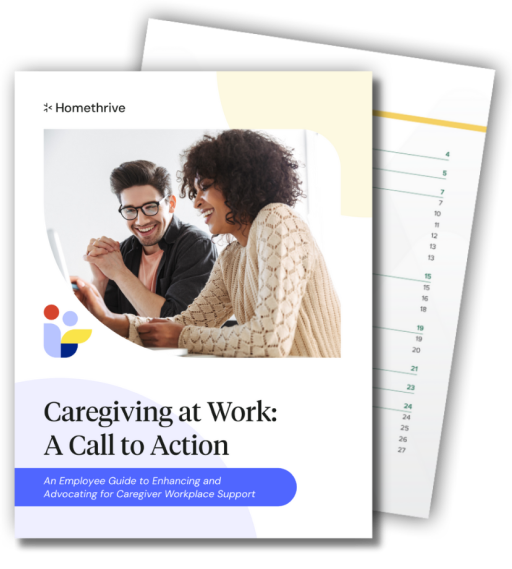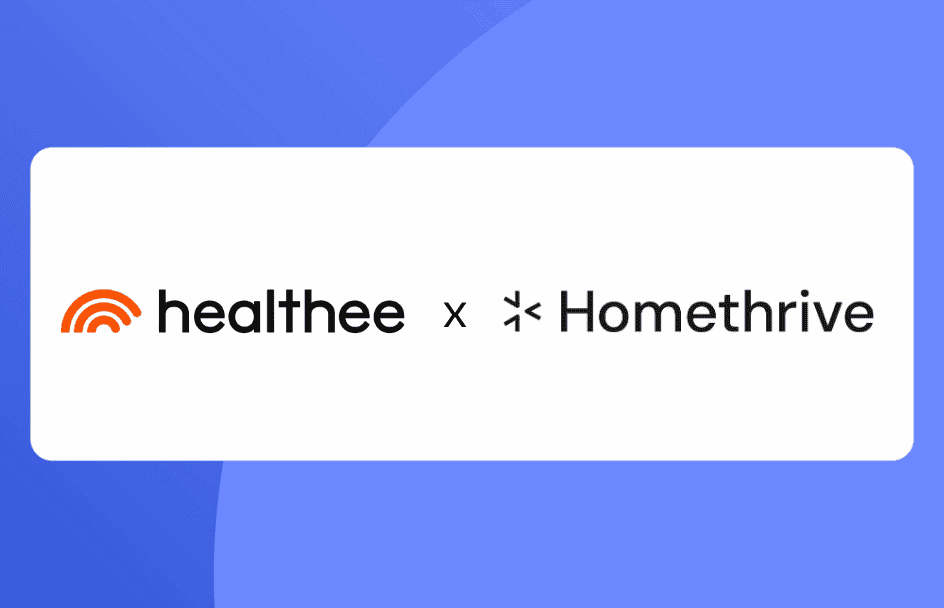September marks the beginning of World Alzheimer’s Month, helping to raise awareness about the disease and its potentially devastating effects on families, communities, and workplaces. Although September 21 officially marks World Alzheimer’s Day, the entire month provides employers with an opportunity to understand how this disease affects their workplace.
Although September 21 marks the key date, integrating the whole month allows employers a chance to see how this disease directly impacts their workplace.
Although many frequently see Alzheimer’s as an illness associated with aging, the impact extends well beyond the diagnosed individual. For each individual living with the disease, there are family members that becomes involuntary caregivers. Many of these caregivers are still working, trying to balance job responsibilities with the increasing needs and demands of caregiving.
Holding a dual role adds pressure to staff that employers cannot ignore. For many in leadership roles, understanding how Alzheimer’s caregiving affects the workplace is the first step in successfully supporting the organization.
The Alzheimer’s Impact and Why It Matters
According to the Alzheimer’s Association, over seven million Americans are living with Alzheimer’s today. While these numbers are staggering, every individual diagnosed is another child, spouse, grandchild, or neighbor having to step in and act as a caregiver. A few caregivers will leave their employment to offer full-time caregiving, while others will attempt to juggle both responsibilities. Many employers underestimate the number of people within their organization who carry dual responsibility.
Within the workforce, most caregiving pressure falls on the sandwich generation. These individuals are employees between 30 and 50 years old, still caring for children while simultaneously offering assistance to elderly parents or grandparents. Many of these individuals hold roles that require consistency, focus, attention, and leadership.
Caregiving rarely fits into a neat schedule, resulting in significant overlap, stress, and burnout for the individual affected.
Understanding the Caregiving Role for Alzheimer’s
Caregiving is a demanding role that regularly involves intense and exhausting tasks. While employees may mention they are “helping a parent,” this description does not do justice to the time and intensity of the tasks required to provide care. Typical caregiving responsibilities include:
- Managing medical needs: Coordinating multiple appointments, navigating referrals to specialists, keeping track of medications that often change, and sitting in waiting rooms for hours.
- Providing emotional support: Supporting a spouse, parent, or other family members who are grieving the changes in their loved one while managing their own stress and sadness.
- Researching long-term care options: Comparing facilities, understanding costs, and making difficult decisions about when at-home care is no longer a safe option.
- Preventing injuries: Responding to wandering, falls, or accidents that can happen suddenly and require immediate time away from work.
- Managing household changes: Installing locks, removing hazards, adding monitoring systems, and adapting living spaces to keep the home safe.
- Navigating family dynamics: Mediating disagreements, confronting denial, or carrying the bulk of the work when others step back.
- Carrying constant worry: Even when they’re at work, caregivers often wonder, “Is dad okay at home?’ Did mom remember to eat? What if something happens while I’m here?”
While all caregiving roles are challenging, Alzheimer’s also comes with extreme levels of uncertainty and unpredictability. Sudden behavior changes, memory loss, personality changes, and overall health decline are difficult to navigate. Unfortunately, these changes also add to the caregiver’s stress.
Additionally, Alzheimer’s disease doesn’t respect regular work schedules. Employees may need to step away from meetings to address urgent questions, leave the office early to attend doctors’ appointments, arrive exhausted after a sleepless night, or struggle with difficulty concentrating for extended periods.
Recognizing the Human Toll on Employees
The heavy weight of caregiving will show in many ways, as it’s an entirely personal experience. Some of these signs might include:
- Emotional strain: Grief, guilt, and helplessness are common as employees witness their loved ones change before their eyes.
- Physical exhaustion: Interrupted sleep, constant worry, and the physical demands of caregiving take a toll on health.
- Financial stress: Caregiving often involves direct expenses, such as medical bills and home modifications, and may necessitate reduced work hours.
- Isolation: Employees may feel disconnected from colleagues and friends because they are preoccupied with caregiving responsibilities.
Some employees may exhibit one or two of these symptoms, while others attempt to conceal their impact. For many people, facing the emotional, physical, financial, and mental implications of caregiving (especially when these roles start abruptly) is devastating.
In fact, the National Library of Medicine suggests that caregivers are more likely to struggle with anxiety and depression than their non-caregiving peers. Without workplace support and encouragement, struggling employees will eventually disengage or leave the workforce altogether.
The Business Impact of Alzheimer’s
Although Alzheimer’s may seem like a family affair, it’s not without organizational impact. Many companies experience the effects through the following:
- Absenteeism: Employees miss work for appointments, emergencies, or simple exhaustion.
- Presenteeism: Focus is impacted while an employee is caregiving, lowering productivity.
- Turnover: Some employees reduce their hours or resign, resulting in increased recruitment and training costs.
- Healthcare claims: Caregivers often develop stress-related illnesses themselves, which can drive up company health costs.
- Team disruption: Colleagues absorb extra work, which creates frustration and lowers morale.
According to the Alzheimer’s Association, more than 11 million family members and unpaid caregivers offer care to people with Alzheimer’s or dementia. Without support, this caregiving role bleeds into organizations and businesses, consistently draining performance and culture.
How to Develop a Workplace Response
An employer can play an active role in supporting staff while they navigate their caregiving responsibilities. Offering support doesn’t require a complete overhaul of benefits or policies, but it should include an intentional view on supporting staff. Support may include:
Offer caregiving benefits
Consider offering a solution like Homethrive, which provides caregiving benefits that can include access to live support and digital tools that help with navigating insurance and healthcare, finding affordable products and services, and end-of-life and loss support. According to the Financial State of Family Caregivers Survey, 75% would leave their employer for one that offered caregiving benefits.
Provide workplace flexibility
Allow flexible schedules, hybrid work options, or adjusted hours to help employees balance caregiving responsibilities throughout the week. Flexibility works best when employees know they can use it without damaging their career prospects now and in the future.
Implement manager training
Direct managers are a company’s frontline response to employee struggles. Teach managers how to respond with understanding, empathy, and support, rather than frustration. These moments will set the tone for the entire workplace culture.
Provide mental health support
Caregivers are at high risk for burnout, anxiety, and depression. Provide the tools and resources to manage these high-stress moments more effectively. Counseling, therapy, or Employee Assistance Programs (EAPs) give them tools to manage the strain. Caregiving benefits like Homethrive also work with these programs to help employees navigate available resources and other benefits.
Acknowledge equity within the workplace
Caregiving responsibilities will always fall unevenly. Women are more likely to step into the role, and women of color are most likely to carry the heaviest burden. By recognizing caregiving as an equity issue, companies can strengthen diversity and inclusion efforts and prevent disproportionate career setbacks.
Why September Matters
World Alzheimer’s Month 2025 is more than just a campaign to raise awareness of a life-altering disease. It serves as a reminder that it impacts every workplace, particularly for employees who take on caregiving roles outside of their scheduled shifts.
Millions of employees are balancing jobs with the invisible weight of caring for parents, grandparents, or partners living with dementia. That weight doesn’t disappear when they walk through the office doors or log onto a Zoom call.
For employers, ignoring this reality comes with a significant cost. Those caregivers who feel unsupported are more likely to burn out, disengage, or leave the organization altogether. It’s a wound that impacts the entire organization at its core.
Absenteeism rises. Productivity suffers. Retention drops.
But when an organization chooses to acknowledge caregiving as part of the employee experience, it finds the opposite happens. Loyalty deepens, trust grows, and teams function more sustainably in the short and long term.
September matters because it challenges leaders to inspect their workplace culture closely. It forces the hard questions like:
- Are caregivers in our workforce visible?
- Do our policies support them, or make their lives harder?
- Do managers know how to respond with empathy?
These answers shape whether employees feel valued or replaceable. It’s about recognizing that behind every statistic is a family trying to cope.
By partnering with Homethrive, you can help employees reclaim valuable time and energy to focus on their work, families, and personal well-being.
Show your team they don’t have to choose between their careers and caregiving responsibilities. Contact us today to explore how Homethrive can enhance your employees’ well-being and productivity.







